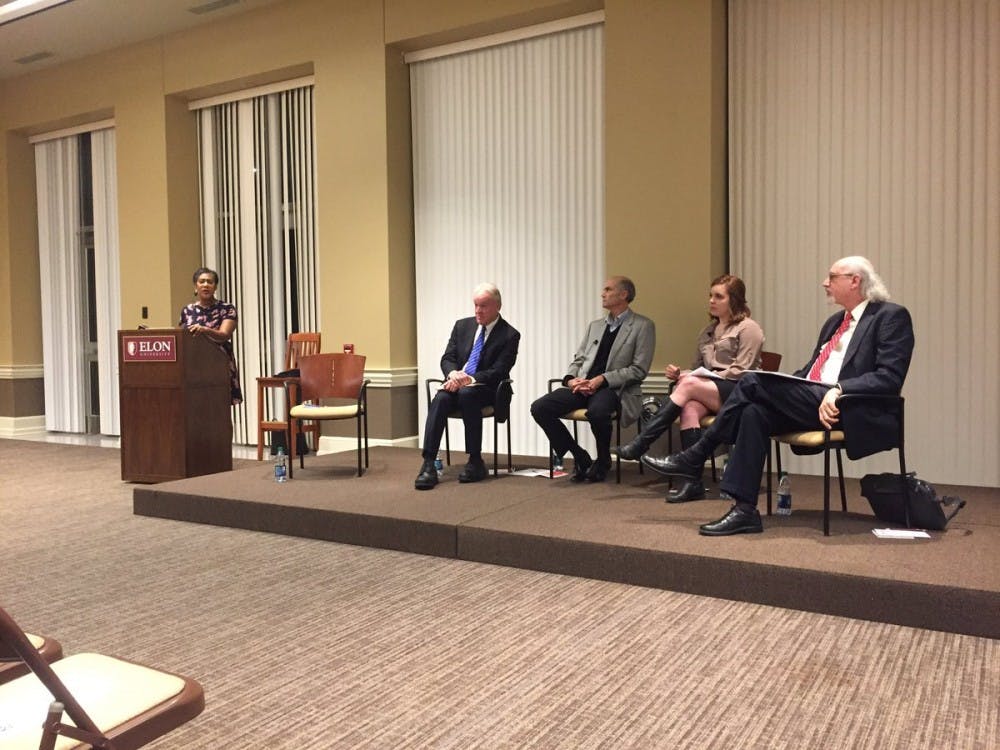The role of freedom of expression in both the classroom and the news media were at the forefront of Tuesday's Community Connections Forum.
About 75 people attended the discussion in McKinnon Hall, titled, "Freedom of Expression within Society and in the Media."

The panel was moderated by Naeemah Clark, associate professor of communications, co-hosted by Elon University and the Burlington Times-News and sponsored by the Council on Civic Engagement. John Bussian, owner of The Bussian Law Firm and legal representative of the Times-News, also served on the panel. CQ - MG
Rich Landesberg, associate professor of communications and a faculty adviser to Elon News Network, addressed how faculty members and students who have conservative or evangelical beliefs are less likely to openly express their opinions in a classroom setting.
He explained that it's not out of fear for their job or position, but rather their spot in the social structure. It's a combination of knowing their thoughts would be unpopular and a fear that others would be judgmental if they were to express those beliefs.
That's come to light, Landesberg said, this past week after the election of Donald Trump.
"If one candidates wins, there's a feeling that everybody needs a hug," he said. "If another candidate wins, it's two thumbs up. I'm reflecting what I've seen and heard from others about that. It presents an atmosphere that could have a chilling effect on freedom of speech and the marketplace of ideas."
Trump's election has caused journalists nationwide to question how his administration would effect the role the media plays in American society.
Throughout his unprecedented campaign, Trump repeated threats against the media such as opening up libel laws to make it easier to sue over unfavorable coverage and encouraging crowds to taunt the media covering his rallies.
"Yes, we have freedom of expression, but it's under great peril with the election of Donald Trump," said John Robinson, professor at University of North Carolina at Chapel Hill and former editor of the Greensboro News & Record. "I think he has ushered in a time where free speech and freedom of speech is in danger."
Panelists discussed how social media and the internet have allowed for citizens to only consume opinions and beliefs of people who agree with them.
Natalie Allison Janicello '13, reporter for the Times-News, said she's seen posts in the last week from people asking anyone who didn't vote for the same candidate as they did to unfriend them.
"It's like, the next time you see them sharing similar content, you go, 'Oh, that's Joe the conservative,'" Janicello said. "In everyday life, before it became a thing to share your opinion every day on social media, it was, 'That's Joe who works at this place,' where his political opinion didn't define him and you could probably treat him in a more civil manner.
"It's mind-boggling that you can't be Facebook friends with someone who has different political persuasions than you."


